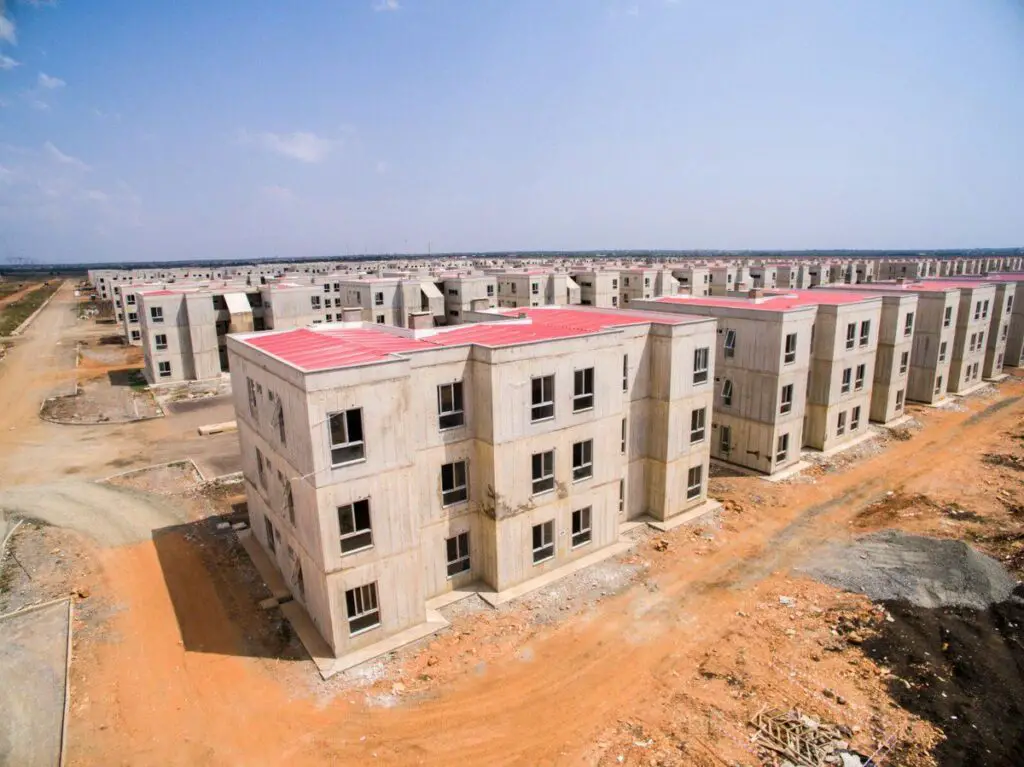- The World Bank data shows remittances by Africans in the diaspora hit over $95.6 billion in 2021 with Nigeria, Ghana, and Kenya among the highest recipients of the inflows.
- Africa has a housing deficit of about 56 million units driven largely by urbanization and population growth, which has left governments struggling to meet the demand for affordable units.
- Many of the 40,000 people moving to African cities every day cannot afford basic formal housing or access loans to acquire homes.
Pan African housing development financier, Shelter Afrique, is targeting Africans living and working abroad to enhance the delivery of affordable housing agenda across the continent.
Shelter Afrique managing director Thierno-Habib Hann said over 170 million people of African descent that live and work in various countries across the world present a formidable resource pool for the continent’s infrastructure development, including housing.
“African diaspora populations are growing, as are their savings and the scale of resources available to reinvest in their countries of origin,” Hann said at the 25th Annual Harvard Africa Business Conference 2023 – Africa Accelerated, where he shared insights on innovative solutions for addressing Africa’s housing deficit,
The World Bank estimates Africans in the diaspora save about $53 billion per year and, in 2021, recorded remittances reached over $95.6 billion.
Last year, remittances to Sub-Saharan Africa, the region most highly exposed to the effects of the global crisis, grew an estimated 5.2 per cent to with strong flows to Nigeria and Kenya.
The World Bank, however, projects remittances in 2023 will soften to a 3.9 per cent growth, as adverse conditions in the global environment and regional source countries persist.
Read: Tanzania State firms a honey pot for corrupt officials
The top 10 highest recipients of remittance inflows in Africa in 2021 include Nigeria ($19.2 billion), Ghana ($4.5 billion), Kenya ($3.7 billion), Senegal ($2.7 billion), Zimbabwe ($2.0 billion), Democratic Republic of Congo ($1.3 billion), Uganda ($1.1 billion), Mali ($1.1 billion), South Africa ($900 million), and Togo ($700 million).
Africa’s top remittance recipients as a proportion of their economies are South Sudan, Lesotho and Gambia with 35 per cent, 21 per cent and 15 per cent of GDP respectively coming from remittances, according to World Bank statistics.
“We are considering tapping into the diaspora to enhance affordable housing delivery by setting up diaspora bonds for affordable housing and infrastructure development, skills transfer, and leveraging on their networks and outreach,” Hann noted.
Since 2000, five countries including Kenya, Nigeria, Ethiopia, Ghana, and Rwanda, with an estimated total diaspora population of four million individuals, or 12 per cent of total African migrants, have issued diaspora bonds.
Rapid urbanisation
Africa is considered the continent with one of the most rapidly growing urban populations, with over 60 per cent of the urban population in Sub-Saharan Africa (SSA) estimated to live in areas categorised as slums and informal settlements.
According to the United Nations, it is projected that the number of Africa’s urban residents will increase to 1.5 billion by 2050, and that Africa will pass the tipping point of 50 per cent urban population around 2035.
Currently, Africa has a housing deficit which accounts for at least 56 million units–sparked by urbanisation and population growth, leaving governments to struggle to meet the increasing demand for affordable housing.
Many of the 40,000 people moving to African cities every day cannot afford basic formal housing or access loans to acquire homes.
According to UN-HABITAT, the provision of affordable land and housing at scale remains a challenge to most countries, especially those in Africa.
While the continent is the most rural region in the world, it is urbanizing fast, straining affordable urban land and housing provision in the coming decades.
“Scaling up affordable housing provision has the potential to contribute to national economies, create jobs, improve the construction industry, and improve the living conditions for the health and wellbeing of all Africans,” notes Oumar Sylla, UN-HABITAT Director Regional Office for Africa.
The housing deficit spares few countries in Africa. A lack of adequate housing affects 14 and 16 million people in Nigeria. South Africa’s housing shortage is approximately 3.7 million units.
Ghana’s sits at 1.7 million units, with the cost of closing the gap estimated at more than $50 billion. Kenya, meanwhile, has an annual housing demand of 250,000 units but an estimated supply of only 50,000 units.
“This housing deficit is a significant indicator of Africa’s growing infrastructure gap, which can be attributed to lack of sufficient capital to finance the delivery of affordable housing projects, lack of bankable projects, and inefficient risk allocation mechanisms. This is why it’s important to incorporate the diaspora into affordable housing financing mix,” Hann said.
The African Development Bank estimates that Africa’s infrastructure needs amount to $130–$170 billion a year, with a financing gap in the range of $68–$108 billion.
To date, less than half of this amount is being mobilized, leaving a financing gap in the range $68–$108 billion.
Shelter-Afrique is a pan African housing finance and development institution established by African governments, to address the need for a sustainable housing delivery system and related infrastructure projects in Africa.
Shareholders include 44 African countries, the African Development Bank, the African Re-Insurance Corporation, and Fonds de Solidarité Africain (FSA).
The company’s mandate is to provide financing through debt, quasi-equity, and equity to both public and private institutions for housing and urban infrastructure projects in its member countries.
Shelter Afrique builds strategic partnerships and offers a host of products and related services to support the efficient delivery of affordable housing and commercial real estate.
These include project finance, institutional lending, equity investments and joint ventures, trade finance, and social housing. The Company offers practical advice and technical assistance to a wide range of industry stakeholders.
